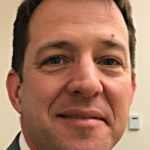$185 million given to Dell Medical School and Seton, with little to show for indigent healthcare, and $55 million more is on the way in FY 2018
Part 2 in a Series
Correction posted September 29, 2017 8:43am (see footnote)
 The challenge for Central Health is how to improve accountability for mega-millions of dollars it doles out to other agencies.
The challenge for Central Health is how to improve accountability for mega-millions of dollars it doles out to other agencies.
The chief beneficiaries of this funding are the University of Texas at Austin Dell Medical School and the Seton Healthcare Family.
Together they will have received $240 million through the FY 2018 from taxes levied by Central Health. State law dictates those funds may only be used to provide indigent healthcare services.
Yet Central Health, the agency created by voters in 2004 to provide healthcare services for the uninsured poor people of Travis County, has little proof of how much of that $240 million was actually used to provide indigent healthcare—services that by law is Central Health’s sole responsibility.
A showdown over proposed new financial policies that could increase accountability and help to repair this institutionalized breach of fiduciary responsibility is scheduled for the Commissioners Court meeting of October 3.
Central Health’s chief obstacle in implementing changes in financial policies and accountability is that the agreements the agency struck with these two major partner organizations—in 2013 with Seton, in 2014 with the University—do not require an accounting of how much indigent healthcare services they provide.
If the Commissioners Court orders Central Health to adhere to the proposed tougher financial policies, that may require renegotiation of those longstanding agreements and a major realignment of how Dell Medical School and Seton are allowed to use the largesse received from taxpayers.
The budget approved by the Travis County Commissioners Court September 19 provides $237.8 million for Central Health’s operations during FY 2018. The agency will levy a tax rate of 10.7385 cents per $100 property valuation. This will result in a tax bill of $327.71 for the average homestead valued at $305,173.
Out of those funds Dell Medical School will receive $35 million and Seton will receive $20 million. That $55 million equates to more than 23 percent of the entire Central Health budget.
Persistent advocates for accountability
A couple of lawyers who have more than 60 years of combined experience since graduating from the University of Texas School of Law have taken a long, deep look at the public agency statutorily responsible for providing healthcare services for the poorest people in the community.


Attorneys Fred Lewis and Robert “Bob” Ozer have spent years and a great deal of concerted effort questioning how Central Health spends the money it reaps from property taxes.
One or both have testified to the University of Texas Board of Regents, the Travis County Commissioners Court, and the Board of Managers of Central Health, the latter two agencies on multiple occasions. Lewis has written opinion pieces published by the Austin American-Statesman.
Ozer has peppered elected officials and Central Health managers with numerous emails over the past couple of years, making pointed observations about conflicts of interest, lack of accountability, and the need for a detailed audit of how the taxpayers money has been spent.
Up until recently their combined efforts have yielded little impact. But the constant drumbeat of criticism has triggered ongoing debates in multiple meetings of the Travis County Commissioners Court, which holds the power to appoint four members of the Central Health Board of Managers, mutually agree with the City of Austin on appointment of a fifth member (the City also directly appoints four members), approve the agency’s budget, and order specific financial policies to be used by Central Health.
Commissioners Court discussion

Before the September 19 meeting, Travis County Judge Sarah Eckhardt posted on the Commissioners Court’s Online Message Board a copy of the proposed Travis County Healthcare District Financial Policies, stating, “I am proposing to the Court that most of Lewis’ amendments be included in some form.” (The draft includes changes proposed by Lewis in red type.)
Key additions that Lewis proposed and were inserted in the draft financial policies are that Central Health must:
Comply with statutes—Any entity Central Health funds must comply with Texas Health and Safety Code Chapter 61 (Indigent Health Care and Treatment Act) and Chapter 281 (Hospital Districts in Counties of At Least 190,000), including nonprofits funded by Central Health: CommUnity Care, Sendero, Community Care Collaborative, and Capital City Innovation.
Undergo regular audits—A third-party Performance Audit of Central Health designed to measure the efficacy and efficiency of healthcare delivery to low-income and uninsured residents of Travis County would be performed at intervals of no less than five years. The audit would include review of healthcare services provided and outcomes achieved through CommUnity Care, Community Care Collaborative, Sendero, UT Dell Medical School, Capital City Innovation Inc., Seton and other partner organizations.
Earn finance certification—Central Health will work toward certification by the Government Finance Officers Association.
Televise board meetings—Central Health will procure equipment necessary to televise meetings of Central Health’s Board of Managers, which currently may only been viewed on the Internet.

Mike Geeslin, president and CEO of Central Health since May 15, 2017, put forth different ideas for financial policy changes.
Late on September 18, the day before the Commissioners Court meeting, Geeslin sent a six-page memo to County Judge Sarah Eckhardt and others, including attorneys Lewis and Ozer.
To Lewis, among the most alarming aspects of Geeslin’s memo is that it states that it “is not clear” … “that Central Health is required to meet every obligation of Chapter 61 of the Texas Health and Safety Code.”
In his response to Geeslin’s memo, Lewis wrote, “This is wrong. Central Health must comply with all state law requirements and any allowed exceptions, including those in Texas Health and Safety Code, Chapter 61. Period.”
Geeslin’s memo even suggests using Central Health funds to pay “for providing free voluntary flu vaccinations for the entire population of Travis County.”
Such a proposal would constitute “population health,” a term that applies to the public at large, meaning everyone in Travis County, not just indigents who by law, because of their poverty, must be provided immunizations along with certain other healthcare services. Spending money on population health appears to be at odds with the statutory limitations to use taxpayer funds only for indigent healthcare.
Despite the fact that Eckhardt posted Lewis’ proposed financial policies for consideration, she did not push for their adoption. In fact her comments seemed to undercut the proposed reforms.
“We had a referendum (in 2012) and voters entered into a partnership for a change in the system and moving away from fee for service and clinic investments,” Eckhardt said.
She objected to drafting from the dais by trying to reconcile the different recommendations made by Geeslin and Lewis “because of unintended consequences.”

Commissioner Brigid Shea said, “Fred (Lewis) made a very sound case, this is the law and we should be clear we expect them to abide by it.”
To which Eckhardt replied, “Central Health must abide by the law whether we put it in the order or not.”
Later Eckhardt said, “I’m trying to get us out of financial legalities. These things are decided by a civil court—not the commissioners court.”
When the county judge asked County Auditor Nicki Riley to comment on Lewis’ proposals she said, “Usually with a financial policy an accounting firm could go in and see if the policies will be met. Legal issues they won’t be able to go in and see if done correctly. That’s not what a typical accounting firm does.”
Ozer suggested that he and Lewis meet with Geeslin and Central Health’s attorneys to “get an order (for financial policies) we can mutually agree on … so that issues will be crystalized and brought to you.”
Eckhardt ordered the matter brought back on October 3.
“I want to vote,” she said. “A perpetual conversation is not healthy.”
Dell Medical School
First, a quick bit of history.
When the Affiliation Agreement among the University, Central Health and the Community Care Collaborative was announced July 2, 2014, Patricia Young Brown, then president and CEO of Central Health, said in a press release that Central Health’s support of the Dell Medical School would result in “prompt access to high-quality healthcare services for those who need it most.”
A couple of years later Young Brown had retreated from her initial comments. In an Austin Chronicle article of September 16, 2016, she said. “There is an attempt to depict that there is a requirement we are not meeting by virtue to not providing a detailed invoice, but that’s not our arrangement with them (Dell Medical School). So I think there’s a disconnect here.”
Addressing the investment in indigent care, Young Brown stressed that the UT Medical School funds will, in the end, benefit low-income residents since the money is going toward training for future doctors who will end up serving the immediate community.
“It’s a long-term investment for a long-term solution,” she told the Austin Chronicle.
Today the Affiliation Agreement has been in effect for more than three years and that “long-term solution” is still not on the near horizon in terms of Dell Medical School providing significant indigent healthcare services. Yet the Affiliation Agreement provides that Dell Medical School will continue to receive $35 million every year in perpetuity.
Spending on salaries, not indigent care
According to Fred Lewis’ detailed analysis of records he obtained from the University through public information requests, very little of the $105 million given to Dell Medical School in the first three years has been used to provide healthcare services for indigents—care that by statute is the responsibility of Central Health and the providers it contracts with for direct services.
Instead, according to Lewis, Central Health funding pays the salaries of the vast majority of the medical school’s administrative personnel whose work does not involve providing any kind of healthcare services, let alone indigent healthcare.
According to his analysis of University of Texas financial records for Fiscal Years 2013-2016, Central Health funds paid for 83.6 percent of personnel compensation costs for medical school administration, medical education, the Design Institute, administrative assistants, executive assistants, administrative managers, business and financial analysts, and even the 50 employees assigned to the dean’s office.
Through laborious tallying of medical school payroll records, Lewis concluded that of the $105 million that the medical school received in the first three fiscal years, less than $3 million could be identified as having been spent for anything related to healthcare.
“I’m not saying there wouldn’t be a slight discrepancy (in my calculations) but they come directly from payroll records,” Lewis said. “I spent months going through these records.”
Lewis told The Austin Bulldog, “In my meeting with Central Health and the County Auditor, nobody disputes my numbers. They said they had no basis to dispute my numbers.”
Med school dean explains spending

The dean of Dell Medical School, Clay Johnston, told the Board of Managers at an August 16 meeting the money provided by Central Health is going for salaries and will also fund research.
“The reality is that without flexibility to use those funds we could never have started the medical school,” said Johnston, who was offered the position in January 2014 at an annual base salary of $675,000 plus a performance-based incentive of 10 percent ($67,500) for achieving annually agreed-upon performance goals, plus a lump sum relocation allowance of $90,000, according to personnel files obtained by The Austin Bulldog through public information requests. He was also offered a deferred compensation arrangement totaling $250,000 over five years.
Without referring to—maybe not even knowing about the spending analysis Fred Lewis performed—Johnson confirmed his findings.
An Expenditure Snapshot included in a January 2017 Progress Report prepared by the Dell Medical School said much the same thing: “Funding from Central Health and Travis County taxpayers has been essential in Dell Med’s launch. The school simply could not have functioned through the startup period without these resources….”
To state the obvious, the money Central Health has been giving to the University of Texas Dell Medical School has been used to fund the medical school’s startup—indigent healthcare services were not even on the radar.
Although Dell Medical School publishes a glossy annual Community Benefit Report and presents it to Central Health’s Board of Managers each year, the reality is that the medical school has made no effort to account for how much indigent healthcare services it has provided—nor is it required to do so under the Affiliation Agreement it entered July 10, 2014, with Central Health and the Community Care Collaborative.
In a roundabout way, Central Health tried to paper over the fact that Dell Medical School spending on indigent healthcare is not being accounted for.
In an August 31 press release Central Health trumpeted the results of a report delivered to its Board of Managers August 30 by local CPA firm Atchley & Associates LLP, the same external audit firm used by Travis County. The headline was “Auditor Reports ‘No Findings’ After Reviewing Central Health-related Dell Med School Financial Transactions.”
But in fact the six-page document delivered by Atchley & Associates plainly states, “We were not engaged to and did not conduct an audit….” Instead the document is labeled a “Report on Agreed Upon Procedures.”
By design, the scope of Atchley & Associates report only addressed whether the university was accounting for the $105 million in funding it had received in accordance with the Affiliation Agreement. Much of the work that went into the report was based on reviewing the previous work done by the University’s outside auditing firm, Deloitte & Touche.
Atchley’s report made no attempt to address whether or how much funding was used to deliver indigent healthcare services, a point made clear in the Board of Manager’s discussion when it was presented.

Board member Cynthia Valadez said, “When Proposition 1 passed, agreements were made that would allow for money to be received (by Dell Medical School) and expended if it aligned with our mission. Our mission by statute is to provide services to indigent, uninsured and underinsured.
“The question becomes, was there ever consideration of looking at money with Proposition 1 language in mind, or would you have had nothing to do with that because (it wasn’t part of what) you were asked to do?”
The question went unanswered but the scope of the agreement did not call for that kind of analysis.
Valadez went on to say, “I was ignorant of the fact we had engaged someone to perform an agreed upon procedure or what the procedures were.”
Mike Geeslin said the engagement was “executed under the CEO’s authority. If you are not satisfied with this, I bear the burden.”
Valadez said the engagement “looked at how dollars were spent in accordance with the Affiliation Agreement, not necessarily in alignment with our mission or anything else.”
The dean’s public relations effort
Clay Johnston’s commentary published in the Austin American-Statesman September 25, starts with: “Five years ago, Travis County voters did something powerful: They created a medical school funded by local property tax dollars with an unprecedented focus on the community—especially those who’ve suffered from health inequities.”

Attorney Bill Aleshire of Aleshire Law PC, a former Travis County judge and tax assessor-collector, had harsh words for Johnston’s article.
“The opinion piece starts with a big lie, that voters approved funding a medical school. Damn lie. They voted to increase taxes to expand medical care for the poor, including through use of medical care at the medical school. Travis voters did not decide to be the only property taxpayers in Texas to fund a state medical school or even its ‘startup costs.’
“The law—although State Senator Kirk Watson tried but failed to change it—would not permit healthcare district taxes to be diverted to funding a medical school even if voters approved it. We don’t have the authority to bypass state laws by just having a local election.
“Johnston claims the medical school has improved healthcare for the poor, but gives no statistics of how many patients benefitted at what cost. And every Travis County taxpayer should be deeply concerned that the County Auditor said that with the information she got from Central Health she could not tell how the funds (given to the medical school) were actually spent.
“The point is that taxpayers are entitled to see how every Central Health tax dollar ends up being spent and whether that expenditure was actually for indigent healthcare. And one would think that the County Judge and Commissioners would want to know that as well.”
(Disclosure: Aleshire represented The Austin Bulldog in two lawsuits filed in 2011 against the City of Austin for its violations of the Texas Public Information Act. He also represented the Bulldog for its intervention in February 2017 in County Attorney v. Attorney General Ken Paxton.)
Seton Healthcare Family
The other major beneficiary of Central Health’s funding is the Seton Healthcare Family, which has received $20 million a year for the last four years and will receive a final $20 million in FY 2018 to cap the $100 million it gets based on a Master Agreement with Central Health.

The Central Health Board of Managers discussed that funding at its September 20 meeting with Greg Hartman, president of external affairs for the Seton Healthcare Family.
“I’d like to know, why don’t you show us or tell us how Seton is spending that money?” Board member Valadez said. “We should be able to ask, for the $20 million (a year) … what you’re doing for us in our system.”
Hartman said the funds were being used “not only for the safety net (patients) but for building a better system.”
He said Seton could not provide an auditable accounting.

Board Member Sherri Greenberg said it would “be better if there were clearer accounting” and “outcome measures we could share.”
Hartman said the Community Care Collaborative, of which he vice chair, is making progress. He said there are a lot of performance measures in this year’s budget, “but we’re not there yet.”
As in the case of Dell Medical School, Seton is not required to report to Central Health how much indigent healthcare services it is providing under the Master Agreement and Omnibus Healthcare Services Agreement, both entered into June 1, 2013.
On the Central Health website, it states, “The Master Agreement between Central Health and Seton Healthcare Family represents a transition from a strictly contractual relationship to a true public-private partnership.”
Unfortunately in terms of accountability, it’s a partnership in which the taxpayers who foot the bills are not well informed of what benefits they are getting in return.
Correction: The story originally erred in stating the Affiliation Agreement was signed seven weeks after voters approved the Hospital District proposition.
This report was made possible by contributions to The Austin Bulldog, which operates as a 501(c)(3) nonprofit for investigative reporting in the public interest. You can help support this independent coverage by making a tax-deductible contribution.
Related Bulldog coverage:
Central Health Feedback Meetings Ill-Attended: Two public forums to gather opinions about the agency drew just nine speakers, August 27, 2017
Links:
2017 Community Benefit Report by Dell Medical School (15 pages)
Affiliation Agreement Report on Agreed Upon Procedures by Atchley & Associates (6 pages, undated, presented to Central Health Board of Managers August 30, 2016)
Central Health Press Release of August 31, 2017 (Auditor Reports “No Findings” After Reviewing Central Health-related Dell Medical School Financial Transactions)
Commentary: Dell Medical School Delivers on promise of healthier city, by Clay Johnston, September 25, 2017, in Austin American-Statesman
Fred Lewis memo of September 19, 2017 (4 pages)
Mike Geeslin memo of September 18, 2017 (6 pages)
Travis County Healthcare District Financial Policies (draft) including Order considered by the Travis County Commissioners Court September 19, 2017 (4 pages)
Comments are welcome: If you would like to post your reaction to this story, please do so on The Austin Bulldog’s Facebook page.








Seems the only people or entries getting any help from Travis County taxpayers are Dell Hospital/ School are Dean Clay Johnston making close to $850,000 the first year and $850,000 every year for 5 years as well as head of Seton Care receiving a mega salary being paid by the taxpayers of Travis County and receiving nothing in return. Johnston claims those future doctors at Dell funded by taxpayers will stay in Austin is false in that no one knows where those future doctor internships will be relocated down the road. It is a total failure by those who were intrusted with taxpayer money and instead used it for personal gain and monetary gain of others and entities that failed to do what they were legally told to do either the money, provide indigent care and hospital and medical care to the uninsured and partially insured Travis county residents. The audit will occur, even it takes a warrant or testimony in front of a Travis Grand jury or Texas Capitol Committee or both.
Seems the only people or ” ENTITIES” getting any help…